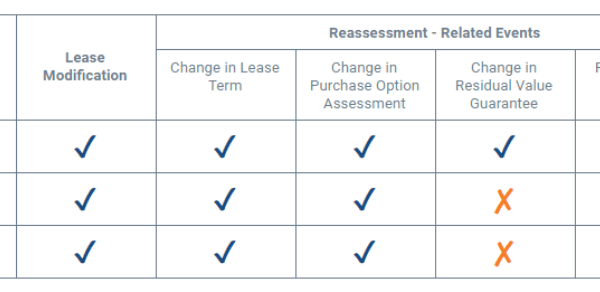This post originally appeared on Marketplace Advertiser, Connected Real Estate Magazine and is republished with permission. Find out how to syndicate your content with theBrokerList.
console.debug(‘TRINITY_WP’, ‘Skip player from rendering’, ‘is single: , is main loop: 1, is main query: 1’);console.debug(‘TRINITY_WP’, ‘trinity_content_filter’);
Office space landlords are doing what they can to fill their vacancies, but leasing to one company might not be the best option, The Wall Street Journal reports. Leasing a building to one company might be an easy way to collect consistent rent, but it comes with risk. For example, more landlords are on the verge of losing their properties because their sole or biggest client opted not to renew their lease. Suddenly, the landlord is trying to fill a vacancy in a less than stellar office rental market.
Primary tenants leaving a property is often the main problem with office loans that are in trouble, according to Manus Clancy, a senior managing director at research firm Trepp. Houston landlord Tanglewood Property Group wound up defaulting on its mortgage when oil field services tenant Schlumberger Ltd. decided not to renew its 50,000 square foot lease. Houston’s office vacancy rate was 25.57% during the first quarter of 2021—almost 2% higher than last year, according Moody’s Analytics. Meanwhile the CRE owner of a 56,000 square foot office building in Maryland is also facing default on their mortgage because its only tenant, Johns Hopkins University, didn’t renew its lease.
Current state of the CRE office space industry
Office space owner defaults are still rare however. Most tenants sign long-term leases and still pay rent when their employees work remotely. In March, only 2.2% of buildings with securitized loans failed to pay their rent. That figure is not much different from last year, 1.9%, according to Trepp. The downside is those long-term clients now often renew their lease at a steep discount. Additionally, losing a major tenant still creates challenges even in cases where default isn’t an issue.
Blackstone Group encountered this challenge when L Brands Inc. said it would not renew its lease at the company’s 1740 Broadway location in Manhattan. L Brands occupies approximately two-thirds of the 600,000 square foot property. Finding a new tenant in Manhattan isn’t easy—new leases in terms of square footage decreased by 33% from last year, according to real-estate services company Colliers International.
“We have been planning for L Brands’ departure for several years and have fully repositioned the asset to make it appealing to future tenants,” Blackstone’s head of U.S. asset management, Rob Harper, said in a statement.
Losing a major tenant can also have future financial impact, The Wall Street Journal reports. A building’s valuation can drop—a Houston office building saw its valuation fall from $121 million to $25 million after its two main tenants left in 2016 and 2019, according to Trepp. Meanwhile, banks become more hesitant to refinance office building owners’ mortgages. That hesitancy can hurt when loan payments become due.
Losing a main tenant can present an opportunity, however. CRE owners could renovate their building or change it into apartments without buying out tenants, according to David Heller, a senior managing director at real-estate services firm Savills Inc.
“When do you get that opportunity again?” he asked.
New York landlord Rudin Management Co. plans to take advantage of losing two major tenants, Thomas Reuters Corp. at a Times Square office tower and American International Group at a downtown building, The Wall Street Journal reports. The company will spend hundreds of millions of dollars to renovate the properties and add incentives to attract new tenants. Rudin Management is betting that the office market will bounce back post-COVID and more modern buildings will attract tenants.
The company prepared itself for potential tenant departures by not putting much debt on either of the buildings and paying down a portion of the Times Square building’s mortgage. Now Rudin Management is in position to refinance the mortgages and invest in those renovations.
“Where owners get into trouble is when their debt is very high and their leases are expiring and they need additional capital to reinvest in the building,” Rudin Management Chief Executive Bill Rudin told The Wall Street Journal.
Joe Dyton can be reached at [email protected].
The post Relying on one office tenant can be a risky proposition appeared first on Connected Real Estate Magazine.



